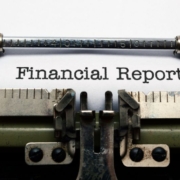The 8 key reports you must make available to potential buyers of your business
If you are looking to sell your business or are acting on behalf of a business owner who wishes to sell, you no doubt understand the importance of the correct disclosure of your company information.
The due diligence process offers buyers the opportunity to review documents and ask relevant questions of the current business owner. This gives buyers the complete picture of the business they are looking to buy and ensures the seller meets all disclosure obligations from a financial and legal perspective.
The more company information a business owner can present in the first instance, the quicker the sale process is likely to become.
Buyers will see less risk in the purchase if they have their questions answered before they have even thought to ask them.
So what is a proven way to organise your company information during the due diligence phase of a business sale?
In our experience, we have found the following 8 key reports to be critical in helping describe the company for sale and answer any questions buyers may have.
The 8 Key reports
- Legal Situation
Seen as the foundation report for all other reports. Establishes the legal entity(s) involved in the transaction, contracts, key legal documents, outstanding or impending litigation and other legal matters. - Tax Situation
Tax returns, tax audits and current and future tax liabilities. - Financial report
Provide the last 3-5 years financial information, a complete breakdown of the company’s balance sheet, audit reports, financial planning for next 12 months and more. - Market, Industry and Strategy
Overview of the market in which the company operates. Economic, industry factors affecting the business – positive and negative. How is the company differentiated from competitors? What is the marketing strategy? Sales pipeline. - Environmental
Are there environmental impacts on the company? Are there environmental obligations? - Insurance Coverage
Confirms the types and level of insurance in place. Confirms any claims made on insurance policies. - Technology
What is the technology used by the company to manufacture/create/deliver its product or service? What is the technology used to support the administration of the business? - Employees
This is a human resources report. An overview of employees, their roles and positions in the company. Includes level of experience within the company, pay levels and achievements.
These 8 reports outline a wide selection of documents that need to be presented, most likely to multiple buyers, as part of the due diligence process.
The storing of critical documents must be done in such a way as to give each potential buyer an equal opportunity to review the company information and ask any due diligence questions.
The security, confidentiality and access to these documents must be tightly controlled through the due diligence process.
The docurex cloud based “dataroom” is a popular solution that helps the seller organise and control access to confidential information as part of the business sale.
- About the Author
- Latest Posts
Claudia is a senior content writer with an insatiable wanderlust and a passion for exploring the world of business. Armed with a pen and a laptop, she roams the globe, capturing the essence of diverse cultures while delving into a myriad of business-related subjects.









